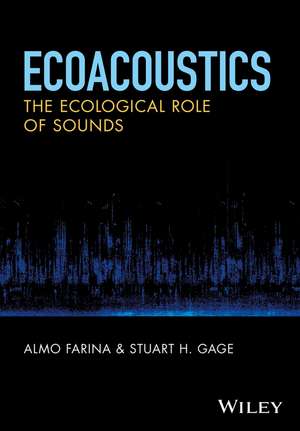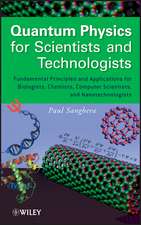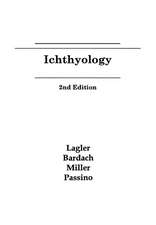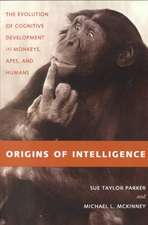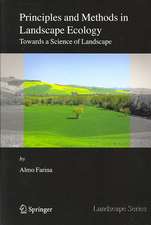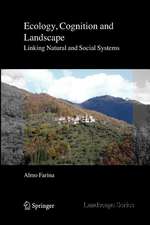Ecoacoustics – The Ecological Role of Sounds
Autor A. Farinaen Limba Engleză Hardback – 13 iul 2017
Preț: 812.21 lei
Preț vechi: 892.53 lei
-9% Nou
Puncte Express: 1218
Preț estimativ în valută:
155.47€ • 168.93$ • 130.68£
155.47€ • 168.93$ • 130.68£
Carte tipărită la comandă
Livrare economică 21 aprilie-05 mai
Preluare comenzi: 021 569.72.76
Specificații
ISBN-13: 9781119230694
ISBN-10: 1119230691
Pagini: 352
Dimensiuni: 178 x 248 x 24 mm
Greutate: 0.89 kg
Editura: Wiley
Locul publicării:Chichester, United Kingdom
ISBN-10: 1119230691
Pagini: 352
Dimensiuni: 178 x 248 x 24 mm
Greutate: 0.89 kg
Editura: Wiley
Locul publicării:Chichester, United Kingdom
Cuprins
Notă biografică
EDITED BY ALMO FARINA is Professor of Ecology, Department of Pure and Applied Sciences, Urbino University, Italy. He is interested in developing theories in landscape ecology and ecoacoustics. He has published more than 270 reports, articles and books on zoology, eco-ethology, bird community ecology, landscape ecology, landscape changes, rural landscape modification, eco-semiotics, code biology, ecoacoustics, soundscape ecology, and ecological theories. STUART H. GAGE is Professor Emeritus, Michigan State University, East Lansing, Michigan, USA. Stuart retired after about 30 years as Professor of Entomology. He received the University Distinguished Faculty Award and the University Outreach and Engagement Campus Fellow at Michigan State University. Stuart continues as Director of the Remote Environmental Assessment Laboratory. His current research focuses on application of ecological sensors, analysis of acoustic sensor observations and cyber infrastructure and he collaborates with colleagues in all realms of acoustics. The study of ecological acoustics has enabled Stuart to record the soundscape in many places using automated sensors. Many of these recordings are analyzed, stored, and are publicly accessible in a digital acoustics library (http://www.real.msu.edu).
Descriere
The sounds produced by geophonic, biophonic and technophonic sources are relevant to the function of natural and human modified ecosystems. Passive recording is one of the most non-invasive technologies as its use avoids human intrusion during acoustic surveys and facilitates the accumulation of huge amounts of acoustical data.
